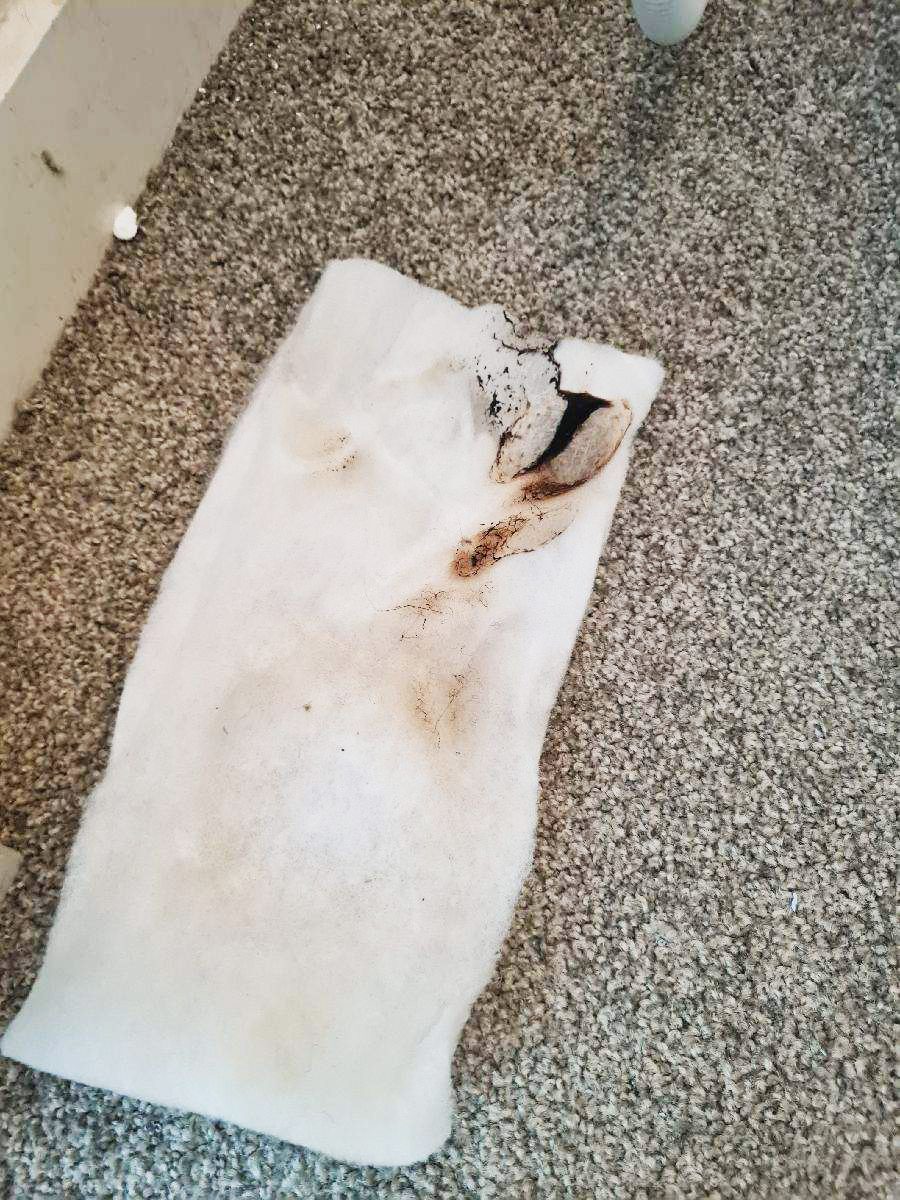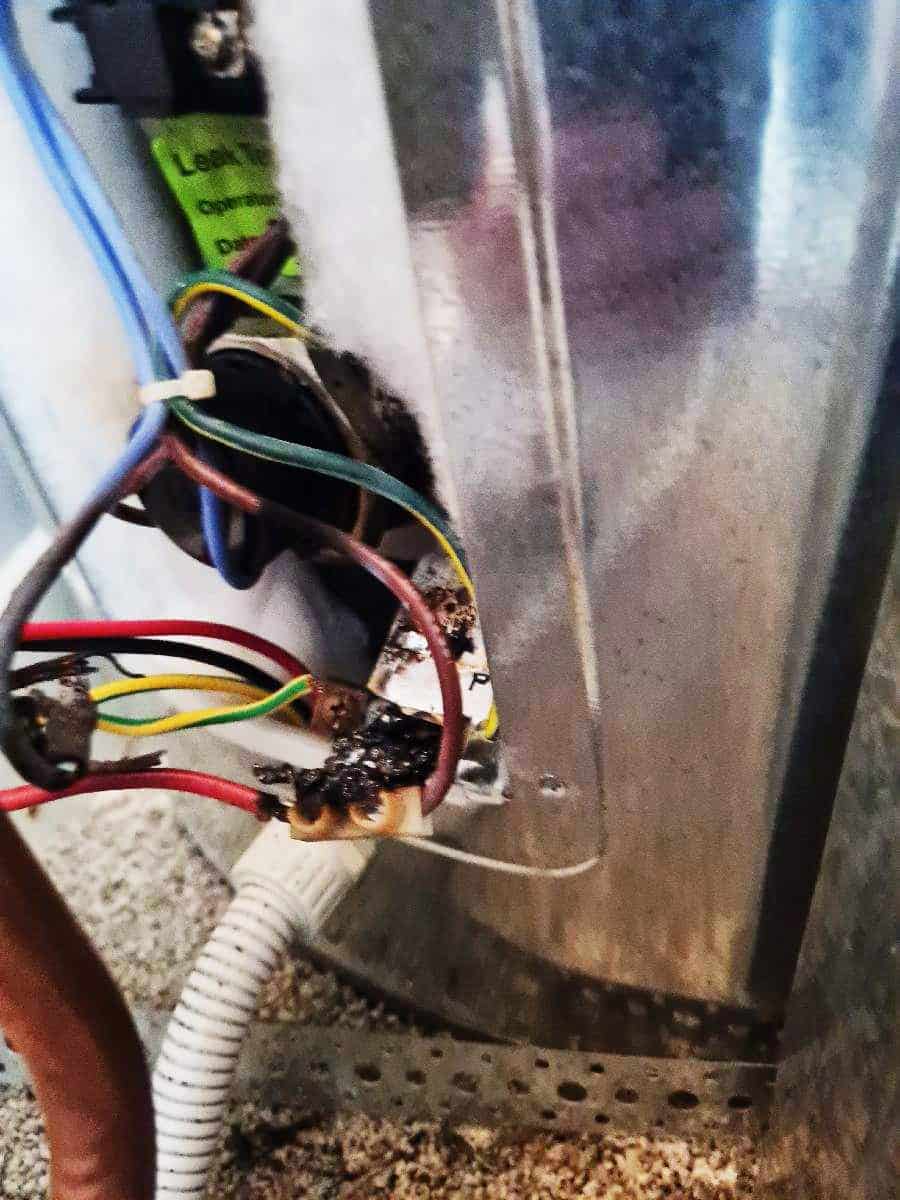
Red flag #1: Cash jobs
The first is a cash job, which happens for several reasons. An electrician who works for a company might squeeze something in on the way home from a day on the tools. They’ll turn up in a sign-written van with a branded uniform, but there won’t be an official quote or invoice.
Or, an electrician working on a larger site, and the site has been shut down, so they’re looking for odd jobs to cover them until the shutdown is lifted. A site can be shut down because of a health and safety issue, or it could be due to financial issues. If that was this electrician’s fault, would you want him to be working on your property?
There’s a very high chance that either they’re not qualified or not covered by insurance., so ensure you receive an official quote for the work being done and that their quote has the Master Electrician logo on it with their licence number.
Red flag #2: No ME Tick
The second is not having the Master Electrician’s tick on your paperwork. Not everyone can become a Master Electrician; everyone starts with an apprenticeship and gains New Zealand qualifications and experience, but the work a Master Electrician must do in order to keep ‘the tick’ is ongoing.
Master Electricians need to be accurate and methodical, practical and logical, good communicators, able to work alone or in a team, safety-conscious and good at problem-solving. They must have normal colour vision to identify different-coloured cables, be reasonably fit and strong for all the lifting and climbing and be comfortable working in confined spaces and with heights.
All Master Electricians undergo a Quality Assurance assessment and must meet strict standards of knowledge, experience, and professionalism, prioritising safety and quality. Master Electricians take Workplace Health and Safety seriously and must comply with the latest regulations and the necessary policies, guidelines, and procedures to keep everyone safe.
We’ve been to a house in Clevedon where we installed an additional power point in a girls’ room. Once we cut a hole in the gib, we discovered that there was a wire in the wall that was live! This could have electrocuted anyone who touched it!
There’s a very high chance that if they’re not a Master Electrician, they’re not up to date with best practices.
Check that you’re using Master Electrician by finding them on the website. Search by your postcode, and their company name should show up on the list.
Red flag #3: No licence card
Number three is when another trade thinks that he can do the electrical bit – after all, it’s just a quick thing, and they’ve seen it done before.
This happens quite often, and just recently, one of the team at French Electrical came across a job where a plumber had changed a hot water cylinder. While replacing the cylinder, they decided to re-wire the electrical.


Fortunately for the client, we caught it in time because it had caused the insulation to catch fire, which had the potential to ignite the entire house.
If you are in a situation where another tradesperson offers to do the electrical work, you shouldask them if they have their Electrical Worker’s licence card.
Chris French, the owner of French Electrical, knows his license number by heart; he says you keep the same number all your working life.
Search the Electrical Workers Registration Board website by your location, and the electrician should come up in the results.
$20,000 Workmanship Guarantee
The biggest reason you should always use a Master Electrician is the $20,000 Workmanship Guarantee for residential work. The guarantee is an integral part of the Master Electricians brand – their members are the only electricians in New Zealand who can offer consumers such assurance. For more about the guarantee, read more here.
This guarantee only comes with a Master Electrician certification, which for a company, lasts three years, and an individual’s practising licence lasts two years. Renewals include a refresher course in electrical works competence, first aid and practical testing.
The stories…
With an outside power point, if you don’t have an RCD installed (have a read of our previous article here), you could get a nasty and unexpected shock. Potentially, it could electrify your entire spa.
Back in the day, water pipes would often be used as the earth – to ground the electricity and provide a pathway for electrical currents to safely dissipate into the ground in the event of a fault. The water pipe had been replaced in this instance and was no longer earthing. This meant that family members were getting electrical shocks constantly (and not the little ones).
We went to a commercial premises where their air conditioning units tripped the circuit breaker. The refrigeration technician asked us to replace the breaker so it would stop tripping. On our arrival, we discovered that the breaker they were using was oversized for the cables, and the cable was at risk of overheating and causing a fire.
Call us at French Electrical
There are many red flags out there and so many reasons why someone who is qualified and aware of the best practices for health and safety should be doing the job. At French Electrical, we are all licensed and registered and conduct our own in-house training and updates weekly.
If you want quality workmanship and the job completed safely, get in touch and book your work with us.
